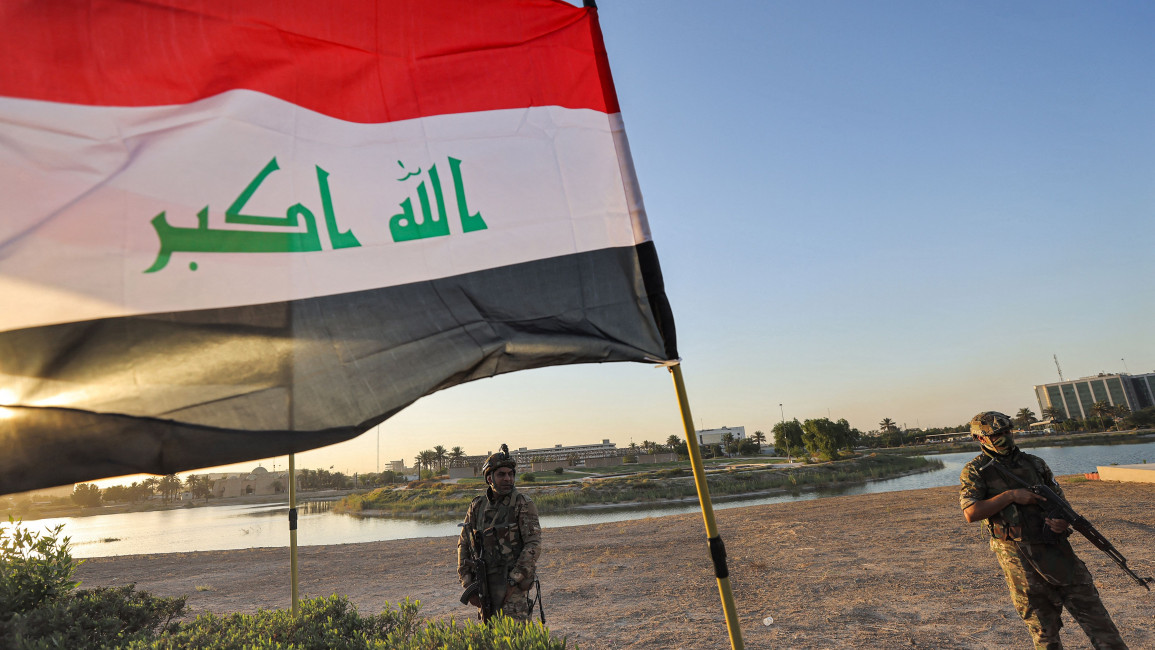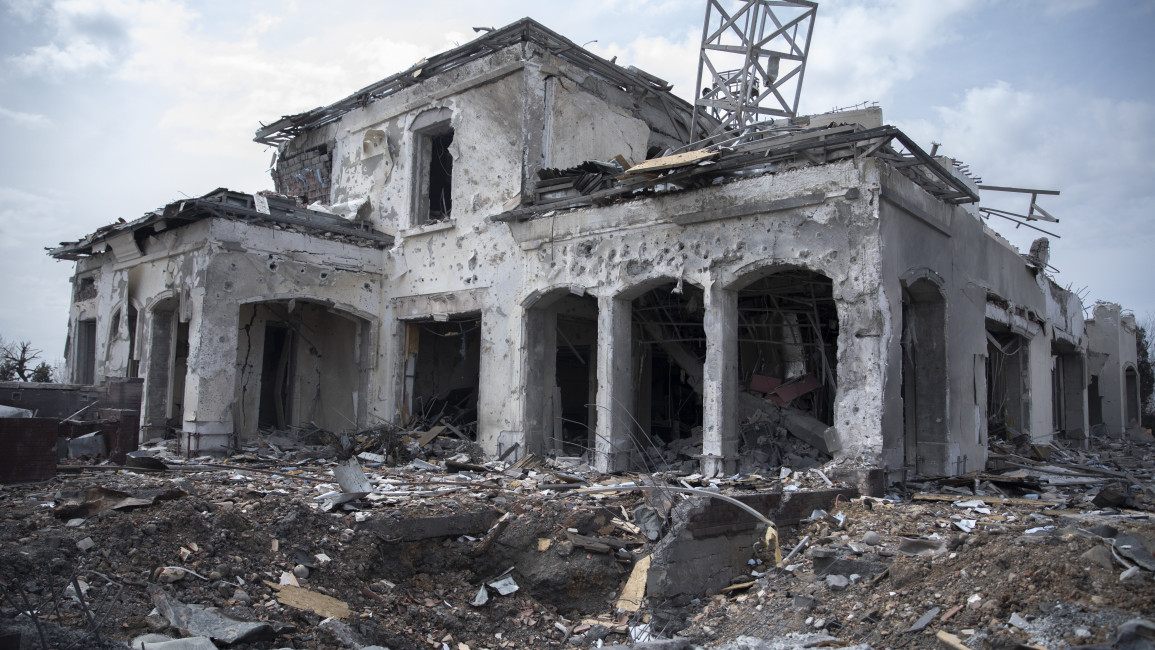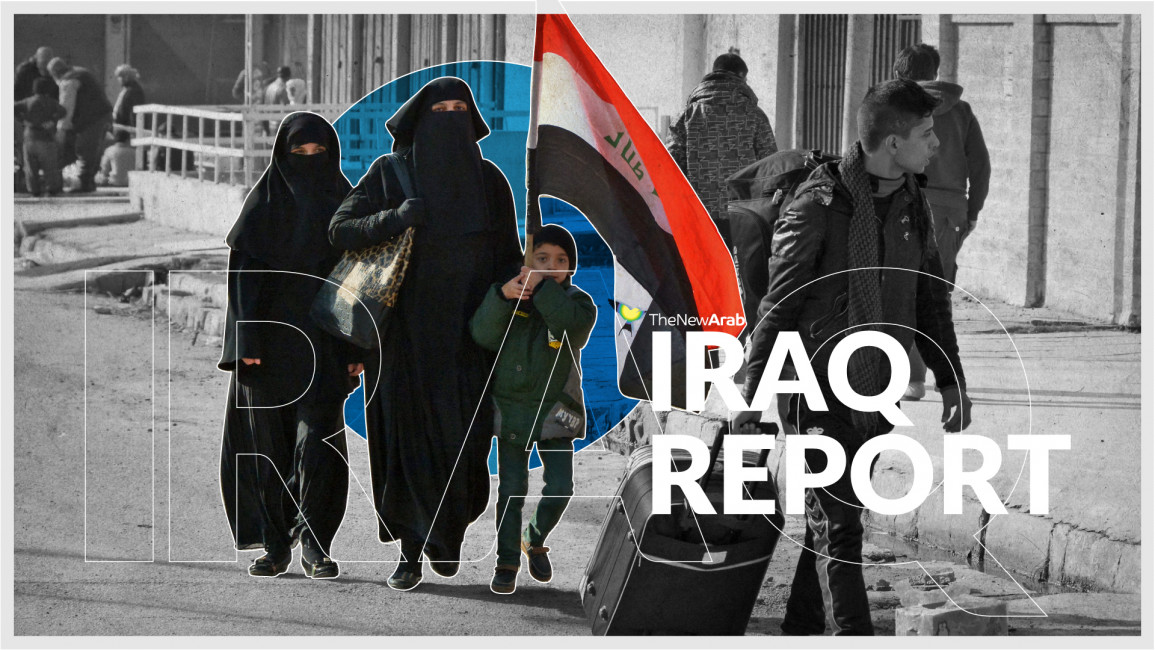
Analysis
Iraq Report Erbil strikes expose Iran's underlying geopolitical anxieties
As Iran comes under increased pressure from geopolitical rivals regarding sanctions, oil, and the nuclear deal, it has turned to hard power to assert its regional influence and hide its
The New Arab
01 April, 2022
As a continuation of its policy of expanding its political and economic control in the Middle East and Central Asia since 2001, Iran launched a barrage of missiles at neighbouring Iraq earlier this month, striking the Kurdish regional capital of Erbil in one of the loudest messages it has yet sent to its rivals.
While that attack occurred more than two weeks ago, Iraqi and Turkish officials have now broken their silence and given their impressions of what Iran was trying to tell the world – that Tehran will not suffer any attempts to reduce its share of the global energy trade.
Although Iran has refused to confirm or deny this, it has stated unequivocally that it was “sending messages” to many parties and that “it was up to them how they interpreted it,” according to Reuters.
Tehran’s demonstrations of force are not usually so aggressive, however, and its influence extends subtly into Iraqi politics in a way that allows it to shape its neighbour’s political arena to its favour. This has again been demonstrated this week as their parliament has failed once more to elect a president, leaving the country without a new government since last year’s general election.
"Tehran’s demonstrations of force are not usually so aggressive, however, and its influence extends subtly into Iraqi politics in a way that allows it to shape its neighbour’s political arena to its favour"
Iran missile attacks expose Tehran’s underlying weakness
In a rare display of hard power, Iran’s Islamic Revolutionary Guard Corps (IRGC) claimed responsibility earlier this month for a destructive barrage of missiles that struck the Iraqi Kurdish capital of Erbil, destroying private and public property.
According to Iranian media sources, it was targeting “bases of Zionists” in Erbil and the Mossad, Israel’s secret intelligence organisation. Tehran also announced that it would “foil whatever plots the Zionists were planning.”
While many analysts have suggested that the attack was a retaliation against Israel assassinating two mid-ranking IRGC officers in Syria at the beginning of the month, others had linked it to multiple other factors, including the now-stalled nuclear negotiations and planned Turkish-Israeli energy projects.
The latter of those analyses now has significant credence, as Iraqi and Turkish officials both confirmed that they believed Iran’s strikes were aimed at deterring a new gas pipeline designed to reduce the West’s reliance on Russian oil, especially in light of the conflict in Ukraine.

The damaged house of Sheikh Baz Karim Barzinji, CEO of the KAR group, after Iran's Islamic Revolutionary Guard Corps (IRGC) 12 ballistic missiles into Erbil March 21, 2022. [Getty]
The bulk of Iranian missiles struck a villa belonging to Kurdish oligarch Baz Karim Barzinji, apparently because Tehran believed he was hosting high-level talks with American, Israel, and Turkish officials. The talks were allegedly to join Iraq as part of a new energy hub that flowed through Turkey, enabling Baghdad to supply Europe with energy more easily.
Barzinji also has a financial interest in Iraqi Kurdistan’s energy sector, owning a 33 percent stake by lease in a major oil pipeline that passes through Kurdish territory.
While Iran has refused to confirm or deny the accuracy of this report, the Turkish and Iraqi comments are plausible.
Aside from its frequent tit-for-tat exchanges with Tel Aviv, Tehran is also one of Baghdad’s and Ankara’s largest suppliers of energy. Any move by either capital to diversify their sources of energy or even their customers would have a huge negative effect on Iran’s floundering economy.
Recent reports have indicated that Turkey and Israel are in serious talks to form a new energy pipeline to Europe that would allow the West to partially bypass its traditional reliance on Russian gas and oil.
The bulk of Iranian missiles struck a villa belonging to Kurdish oligarch Baz Karim Barzinji, apparently because Tehran believed he was hosting high-level talks with American, Israel, and Turkish officials. The talks were allegedly to join Iraq as part of a new energy hub that flowed through Turkey, enabling Baghdad to supply Europe with energy more easily.
Barzinji also has a financial interest in Iraqi Kurdistan’s energy sector, owning a 33 percent stake by lease in a major oil pipeline that passes through Kurdish territory.
While Iran has refused to confirm or deny the accuracy of this report, the Turkish and Iraqi comments are plausible.
Aside from its frequent tit-for-tat exchanges with Tel Aviv, Tehran is also one of Baghdad’s and Ankara’s largest suppliers of energy. Any move by either capital to diversify their sources of energy or even their customers would have a huge negative effect on Iran’s floundering economy.
Recent reports have indicated that Turkey and Israel are in serious talks to form a new energy pipeline to Europe that would allow the West to partially bypass its traditional reliance on Russian gas and oil.
RELATEDAnalysisDana Taib Menmy
It is also likely to be the case that Iran is demonstrating to the United States that it can easily destabilise the region through its arsenal of ballistic missiles that have the range to strike every country in the Middle East, including Israel.
Tehran will be inclined to make such demonstrations from now on as it feels that Washington has stalled the nuclear negotiations due to the ongoing Russian invasion of Ukraine. The reality, however, is that Russia is exercising its considerable diplomatic weight to freeze the process by linking sanctions faced by Moscow to the sanctions regime afflicting Tehran.
If Iran was intending to signal its impatience to the United States, then Washington has also responded to the attacks by increasing sanctions on segments of the Iranian defence industry.
While these sanctions will have little effect considering Iran’s ability to operate under sanctions since 1979, it does indicate that the White House was not impressed by Tehran’s latest spate of violence. The US is unlikely to prioritise the Iran nuclear deal over the crisis in Ukraine. Iran is therefore facing a number of simultaneous geopolitical and international pressures and is struggling to keep up.
"Iran is therefore facing a number of simultaneous geopolitical and international pressures and is struggling to keep up"
Post-election fallout continues to blight presidential hopefuls
As Iran continues to use Iraq as a tool to signpost its ambitions to the rest of the world, it has also proceeded to hinder its neighbour’s domestic political process. Iraq’s parliament failed to elect a president on Wednesday, for the third time since the start of the year.
Iraqi lawmakers close to Iran had earlier boycotted last Saturday’s session to ensure a president could not take office, which makes Wednesday’s failure to elect a new president the second in only four days.
The minority winner of the last election was Shia cleric Moqtada al-Sadr’s Sairoun movement whose presidential candidate is Rebar Ahmed, the incumbent interior minister of the semi-autonomous Kurdistan Regional Government.
While Sadr has insisted that he will form a majority government by forging key alliances with Kurdish power players in the Kurdistan Democratic Party (KDP) and long-marginalised Sunni groups that banded together for October’s election, he has thus far failed to make any of the reforms he promised.
Adding to his woes are recent judicial rulings by Iraq’s highest courts on the constitutional interpretation of how presidents should be elected. Effectively, Iraq’s highest legal authorities have stepped in to ensure that Sadr has to share power with his Shia rivals.
RELATEDIraq ReportThe New Arab
This is not to say that Sadr is particularly “anti-Iran”, but rather that Tehran has long encouraged a form of “sibling rivalry” between its Shia proxies and associates so that no single party becomes too powerful and may one day think about striking out on its own without Iranian patronage.
By keeping its clients at each other’s throats, Iran is better positioned to leverage its influence and continue to use Iraq as an instrument of its own power projection, allowing it to reach deep into Syria and even threaten Saudi Arabia, Turkey, and the United States.
What the Iraqi parliamentary chaos shows is that the political system established by the 2003 US occupation designed it to be controlled by external forces, and democracy does not remotely factor into how the state should be run.
Unless there is root-and-branch reform of the Iraqi political system, anyone who engages in Iraqi politics and the democratic process will have to face an entrenched deep state that ensures that the nation remains at the mercy of powerful foreign players, most notably the US and Iran.
The Iraq Report is a regular feature at The New Arab.
Click here to see the full archive.

No comments:
Post a Comment